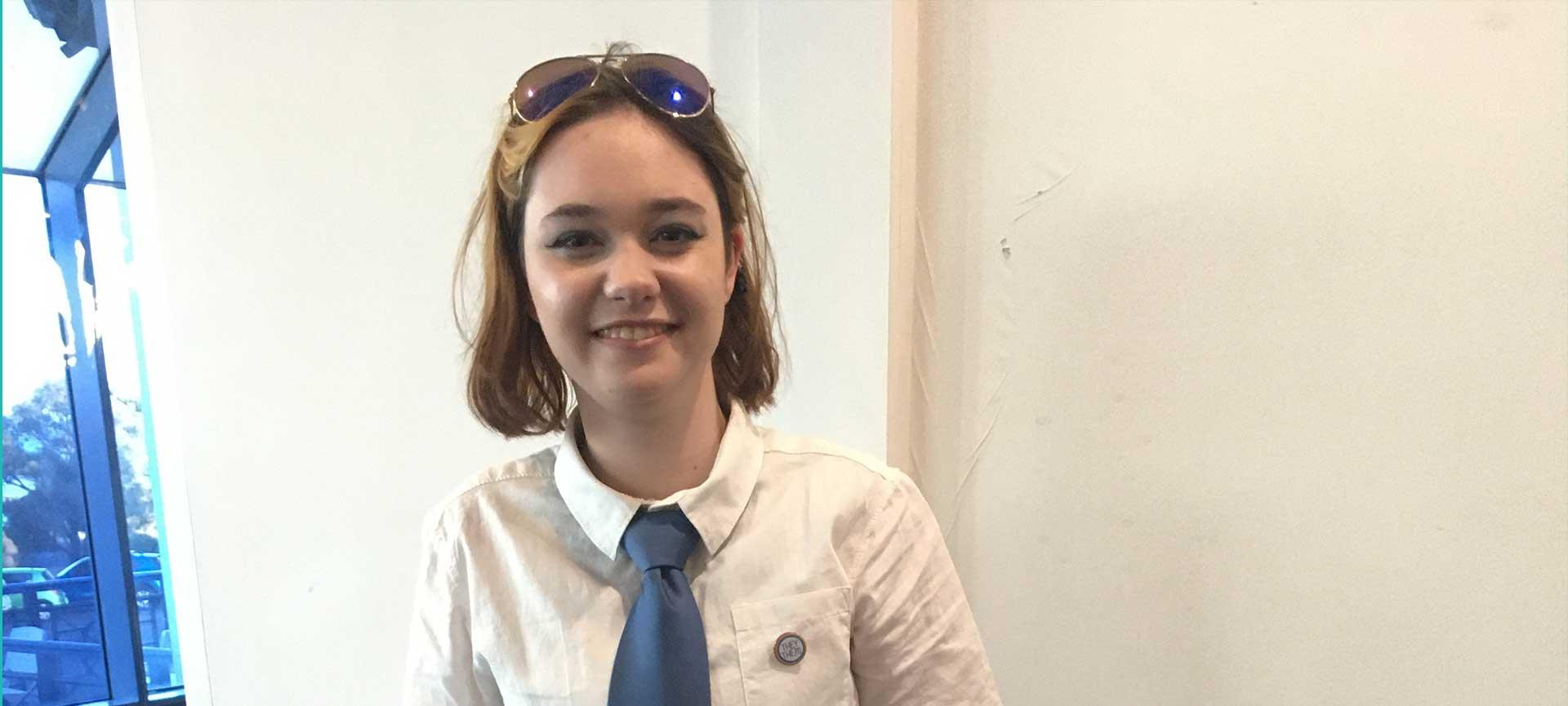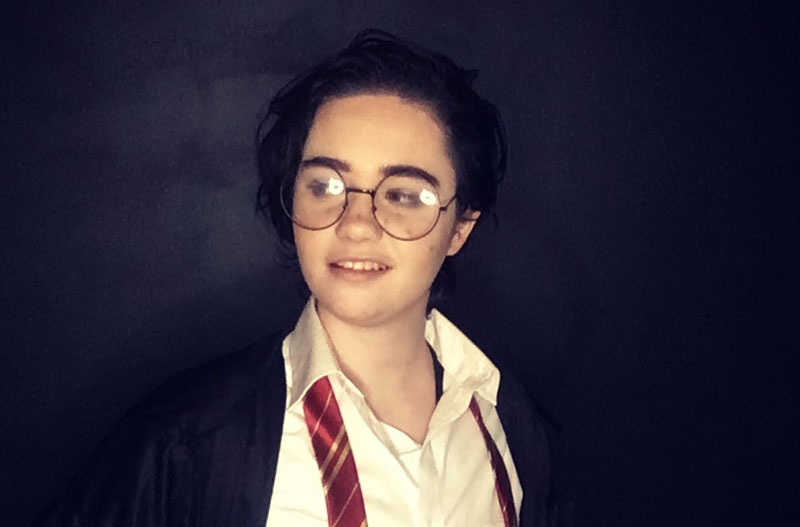
Improving accessibility with Sy
When designing, building and implementing digital tools to support vulnerable communities, we believe it’s vital to consult with the people who will actually use them.
In 2021, we established our first Disability Reference Group (DRG) to help us better meet the needs of people with disability, their families and carers through our products like Ask Izzy.
DRG members bring to the table a diverse range of backgrounds, perspectives and experiences to help us improve the accessibility of our products and services. In this blog, we’re excited to introduce you to DRG member and disability advocate Sy.
Since childhood, 20-year-old Sy (they/them) has lived with a long list of disabilities, including Ehlers-Danlos Syndrome (EDS), autism, Tourette's, dyslexia and Other Specified Dissociative Disorder (OSDD). They also suffer from chronic nausea, fatigue and pain.
There’s no cure for Sy’s disabilities and very few treatments available. Sy’s disabilities are also considered invisible, and so often aren't believed or are dismissed despite the massive impact they have on Sy’s life.
“A lot of the time the adults in my life have not believed me, not quite understood that I'm in pain 24/7 … If you could just be in my body for 24 hours, then you could experience what this is.”

Sy spent a year bed ridden and three years housebound. They had to be home schooled for most of high school and needed extra time to complete their studies.
Sy is currently focusing on their health and efforts to be independent, with the hope of going to university to study musical theater and literature. Sy also enjoys dancing.
“I have limited abilities, but I do what I can where I can,” says Sy. “It helps with the chronic pain, with the EDS, with chronic fatigue, getting my movement up, because I also have muscle deterioration from the amount of time I've spent in bed and not moving.”
Sy’s creativity also extends to scriptwriting (they’re currently working on three scripts!), creating visual art, short films and audio stories (such as the brilliant Bacon Makes Us Human). Sy loves their hometown of Portland in regional Victoria but says it can be a bit limiting – they’d love to move closer to a big creative, cultural centre, but unfortunately that will have to wait until they can live more independently.
Sy heard about the opportunity to join our DRG through the program coordinator at a LGBTQ group in Portland.
Through the DRG, Sy has contributed to activities that aim to understand the experiences of people living with disability and look for ways to leverage their expertise to improve Ask Izzy for everyone.
An important part of the Ask Izzy experience is finding the right service by choosing from our help categories. Sy particularly enjoyed testing the way we organise services based on a range of different scenarios.
“I think technology can be a really great aid when you have disabilities,” says Sy. “There's something called Simply Plural that I use for my OSDD, those sorts of apps that actually make life easier … Even having Siri has been helpful because if I'm having a migraine and I can't open my phone, or my hands aren't working, I can tell Siri to call my carer,” says Sy.
But it took Sy a while to save up for their iPad, phone and apps. They’re conscious that cost can be a huge barrier.
“A lot of people with disabilities tend to be in poverty or are quite poor. In the future I’d like to see that it's a lot more affordable, if not free, for people with disabilities.”
“I think it should be more mainstream for people to be able to find and create more apps like that,” says Sy. “We’ve been asking for years to be able to do stuff like Zoom into classes, because otherwise we just have to miss them. Able-bodied people just really don't think about that, so they've dismissed it. And then COVID happened and suddenly it's all, ‘Oh gosh, of course we can accommodate that!’”
“It was very good to feel heard in the Ask Izzy work. I don't often have people ask me ‘What do you want? Is there anything we can actually do?’ Not in a pity sort of way, but in a ‘we might actually be able to help or change something’ sort of way. I love that.
“I'm disabled, I'm neurodivergent, I'm gay, I'm trans, I'm polyamorous, I'm all these different things. And so I do find it very difficult for my voice to get heard. But I feel it's easier when you have other people shouting with you.”
It reminds Sy of a scene towards the end of Horton Hears a Who!: “In order to be heard, every single person has to shout, “We are here, we are here, we are here,” says Sy.
“And it works, but it could only work if everyone was shouting. It takes every voice to advocate, as many voices as you can possibly get to try and get heard. It's not just one person. It has to be a multitude.”
